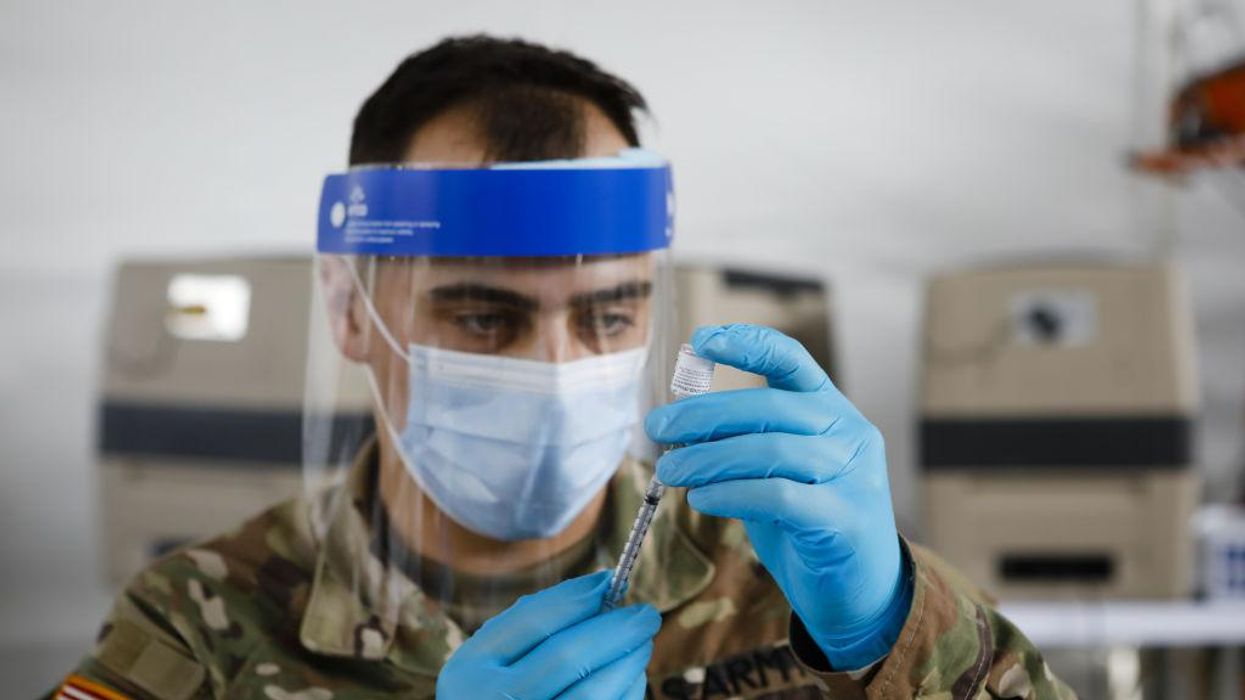
Eva Marie Uzcategui/Bloomberg via Getty Images

A study of U.S. military members who were vaccinated against COVID-19 found a higher than expected rate of heart inflammation reported by those who received the vaccine, though cases of this adverse effect are still extremely rare.
The study, published Tuesday, took a retrospective look at patients serving in the military who were vaccinated with an mRNA vaccine between January and April 2021. A total of 23 male patients ages 20-51, 22 of whom are currently serving and one who is retired, showed symptoms associated with myocarditis (heart inflammation) within four days after receiving their vaccine shots. These patients received either the Pfizer and BioNTech or Moderna vaccines.
Throughout this period, the military administered more than 2.8 million vaccine doses. Estimates predicted that eight or fewer patients would report heart inflammation out of the 436,000 male military members who received two COVID-19 vaccine shots.
"While the observed number of myocarditis cases was small, the number was higher than expected among male military members after a second vaccine dose," the study said.
All patients received brief supported care and had recovered or were recovering from their symptoms by the time the study was published.
The study notes that incidents of heart inflammation were not reported following vaccination in any of the clinical trials of current COVID-19 vaccines. "Adverse cardiac events of any kind were reported in less than 0.1% of trial participants, and rates were not higher in recipients of vaccine compared with placebo. The inability to identify rare adverse events is understandable in preauthorization testing since fewer than 20 000 participants received a vaccine in each trial," the study said.
The bottom line is that while some people who receive an mRNA COVID-19 vaccine may report chest pain and other symptoms of heart inflammation, those cases are extremely rare. The risks of the vaccines must be weighed against the benefits of immunization against COVID-19 — which is also known to cause heart inflammation.
"Recognition of the substantial morbidity associated with COVID-19 infection, including risk of cardiac injury, and the strong effectiveness of immunization in preventing infection provide important context for this topic," the study said. "Concerns about rare adverse events following immunization should not diminish overall confidence in the value of vaccination."
Last week, the U.S. Centers for Disease Control and Prevention issued an update on reported cases of heart inflammation in people who have received an mRNA vaccine.
"Since April 2021, there have been more than a thousand reports to the Vaccine Adverse Event Reporting System (VAERS) of cases of inflammation of the heart—called myocarditis and pericarditis—happening after mRNA COVID-19 vaccination (i.e., Pfizer-BioNTech, Moderna) in the United States," the CDC said.
The cases were mostly reported among male adolescents and young adults age 16 years or older within days after receiving their second vaccine shot.
"These reports are rare, given the hundreds of millions of vaccine doses administered," the CDC said. The agency continues to recommend COVID-19 vaccination for everyone 12-years-old and older given the risk of COVID-19 illness and possibly severe complications.